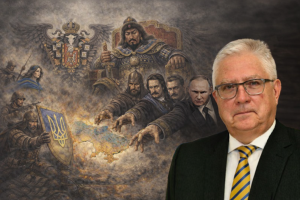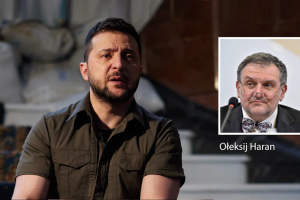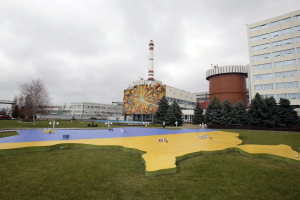Two scenarios for the Kremlin on the diplomatic front
Source: NV
Russia will continue to try to involve Ukraine in negotiations
Unable to defeat Ukraine on the battlefield, Russia has turned to other tools. The first is the destruction of critical infrastructure in order to render Ukraine uninhabitable during the cold winter. The second is the imposition of negotiations. This second one deserves to be looked at more closely.
In fact, the Russian Federation has been trying to push through a restart of political negotiations since mid-summer, when the so-called grain deal was agreed upon. Russia saw it as a first step towards a broader agreement, it was supported in this by both Turkey and the UN. But for Ukraine, it was an obvious attempt to freeze a new demarcation line.
However, Russia will continue to try to draw Ukraine into negotiations. However, the main audience here is not so much Kyiv as its Western partners, and the key message of the Kremlin is that Ukraine will still not be able to liberate its lands, so negotiations on the status of territories and concessions are inevitable.
In the near future, Moscow will pursue several goals using this tactic. First, they will try to slow down the pace of supplies of Western weapons. Secondly, they will seek to freeze the actual front line, that is, their occupation of certain territory. For Ukraine, this outcome is unacceptable. Even Russia's nuclear ultimatum did not stop plans to liberate occupied territory. Therefore, the Kremlin will try to influence those who are financially providing for this counteroffensive: Western governments and public opinion in our partner countries. Thirdly, the Russian Federation will seek to destroy the unity of the international anti-Russian coalition, and to provoke harsh disagreements between supporters and opponents of premature agreements with the Putin regime.
It is impossible to say unequivocally that Russia's calculation is unfounded.
The weak point of the current anti-Russian coalition is the lack of an unambiguous understanding of what a Ukrainian victory should look like. More precisely, it is not agreed upon how crushing the defeat of Russia should be. The West is completely unprepared for the destabilization or collapse of Russia as a result of its complete defeat on the battlefield. Therefore, it is not surprising that a cautious testing of the waters has begun behind closed doors: what should be considered a good moment to move from exclusively military methods to diplomacy? And among other things, is it worth it so fundamentally to stand for the liberation of Crimea and Donbas?
There is no doubt: Russia will try to convince the whole world that there is a difference between Crimea and the Donbas occupied since 2014, on the one hand, and the territory captured by the Russians in 2022 on the other. And according to the Kremlin’s plan, there will be supporters of the position in the West that Crimea and Donbas should be put outside the bounds of Ukraine’s counteroffensive actions.
Given this, on the diplomatic front, the Russian Federation could apply two scenarios.
The first provides for short-term attempts to involve Ukraine and its partners in negotiations to buy time to prepare the Russian army for new attacks. This is practically a continuation of the status quo, but with significantly increased terror on the civilian population. The latter, according to Russia's expectations, should provoke not only a humanitarian catastrophe, but also pressure from the Ukrainian population on the government with a demand to start negotiating. This hope is useless. However, Russia will use this time to accumulate resources from mobilization and weapons from Iran and North Korea.
The second diplomatic scenario assumes that Moscow will focus on a medium-term format of negotiations without attempts to carry out full-scale offensive actions (while aggression in Donbas continues). The Russian Federation will try to “duplicate” the Normandy format in its general essence: mediation by a third party/parties, hostilities along the current line of demarcation, and de facto negotiations on the status of the occupied territories. This scenario could be triggered by various factors: another crushing defeat of the Russian army on the battlefield; clear plans by the West to supply Ukraine with the latest types of weapons for a large-scale counteroffensive (NATO-style tanks, long-range artillery, fighter jets), or a change in the position of Western elites towards greater commitment to the idea of negotiations.
In general, Russia will try to maintain its control over the occupied territories by both military and diplomatic methods. Moreover, it will not abandon plans for new attacks. But today, unlike in 2014, the Kremlin does not even have the trappings of trust as a negotiating party. The mood in Ukrainian society and authorities is categorical: only the complete liberation of the territory of Ukraine can be considered the end of this war. And it is precisely this adherence to Kyiv’s principles that will serve as a safeguard for any agreements at the expense of Ukraine’s sovereignty. However, in 2023, Ukrainian diplomacy will have to stubbornly resist the idea of starting negotiations when the matter should be decided on the battlefield.









